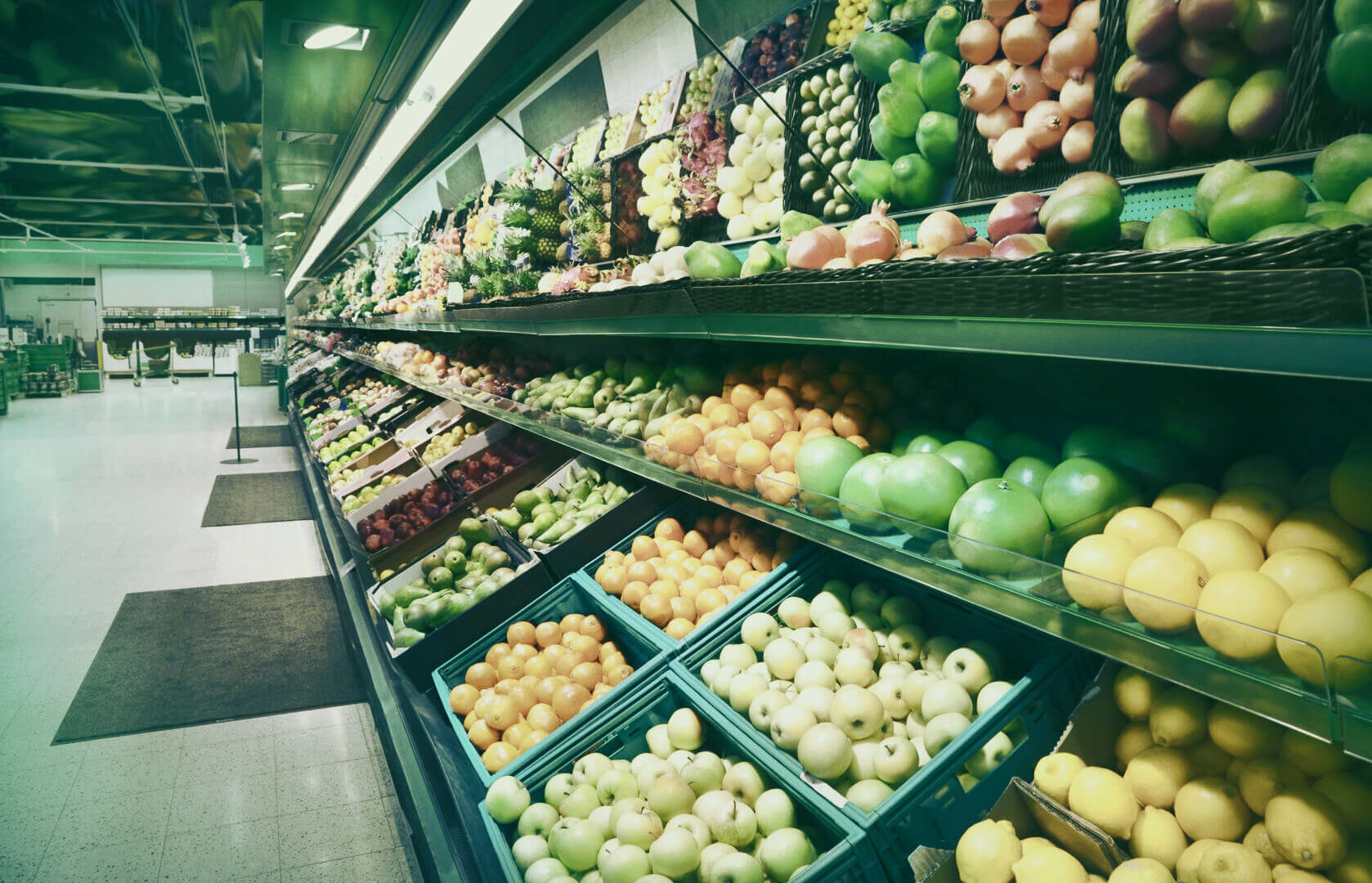We all should be aware that satiety means to feel satiated aka feel full. By accomplishing this feeling, one must actually eat throughout the day. With how society works now there is no time to eat right? We get it, life can be stressful, we are all on the go, we don’t have time to cook, we don’t know what to eat, meal prepping is too time consuming, etc. These are just excuses at the end of the day.
By not eating throughout the day you are just doing your entire body and brain a disservice. So, the question becomes, how long can you stand being hungry before you start eating again? Well, only you can really determine that. To make things more complex, how about utilizing and keeping your satiety levels elevated during a caloric deficit? We know the majority of people want to be lean, summer is right around the corner, and in order to reduce body fat, one must be in a calorie deficit, thus eat less. So it would be pretty wise to manage satiety levels throughout the day so you don’t get hunger pangs, snack on foods, and potentially fall off track and regress.
Understanding Hunger and Satiety While in a Calorie Deficit
Hunger is one of your body’s strongest and most beneficial stimuli, it helps ensure you consume enough calories for your needs. It also works against you when you’re trying to lose weight. You could easily lose weight just by eating less, but the less that you eat or the longer you postpone eating, the hungrier you become, and the longer it takes your hunger to subside once you do begin to eat. [1] Typically the hungrier you are, the more likely it is that you’ll overeat, and consume extra calories that can quickly inhibit or reverse your weight loss progress.
As we mentioned earlier, the only way to end hunger and feel satiated is to eat. Yes eat, which is one of the most enjoyable things to do in life and pretty important from a human physiological stand point. With that said, our main point here is eat and cure those awful hunger pangs and give your body the nutrients it needs to operate and function properly throughout the day. Being in a caloric deficit is already bad enough, why make it more difficult and feel hungry all day long.
Are All Foods High in Satiation Levels?
Some foods are better than others for satisfying your hunger. A baked potato, for example, will most likely “fill you up” much more than a serving of candy that has the same number of calories. We have often heard people claim that you have to cut potatoes out in order to lose weight. Funny thing is they never have any data or proven references to back up these narrow minded claims.
Chris Voigt, head of Washington State Potato Commission, went on a 60 day potato only diet and lost 21 lbs while improving his blood lipid profile and reducing his fasting glucose levels. Still think you can’t lose weight while eating potatoes? Another study found that potatoes were far more satiating than all 38 common foods tested, including protein dominant foods. [2]
Some foods fill your stomach faster and remain in your stomach longer, and therefore do a better job of holding off hunger. For example, higher GI carbs, which are fast digesting and breakdown faster into the blood stream and store faster in your glycogen levels. As opposed to complex carbs that take longer to break down in the bloodstream will keep your satiety levels much higher throughout the course of a day along with keeping your blood sugar levels stable. By keeping your blood sugars elevated between meals you avoid the common symptoms of hypoglycemia, feeling lethargic, brain fog, and constant hunger pangs. Always think before you eat a meal, will this meal keep my blood sugar levels elevated and hold me off until my next meal?
Also, make sure to get whole protein sources instead of liquid. Protein has the highest (TEF) Thermic Effect of Food out of all the macronutrients. The energy cost of digesting, absorbing, and metabolizing proteins (23%) is greater than that of either carbohydrates (6%) or fat (3%). Flat et al. 1978. This is backed up by more research from Jequier et al. Who suggested the thermic effect of protein is 25-30%, Carbohydrate is 6-8%, and fat is 2-3%. Protein is energetically costly so make sure to load up on high quality lean animal sources for your protein so your satiety levels are elevated throughout the day.
In another study which was conducted by Suzanna Holt of the University of Sydney, fed human test subjects fixed calorie portions of 38 different foods, and then recorded the subject’s perceived hunger following each feeding.
The results of Holt’s study, like many similar studies, indicate that satiety is most strongly related to the weight of the food consumed. In other words, the foods that weigh the most satisfy our hunger best, regardless of the number of calories they contain. However, higher amounts of certain nutrients, such as protein and dietary fiber, also appear to improve satiety. [3]
Is Satiety a Mental Thing?
We can probably make a case that many things in life are just quote on quote mental. Our central nervous system is so powerful and capable of imagining pretty much anything, so why can’t we make a hypothesis that satiety is a mental thing. We truly feel it is 50% mental along with being a learned behavior.
Let us elaborate some more on what we mean by a learned behavior. We make judgments about how full something will make us based on easily observable characteristics: a food’s shape, smell, and volume, etc. We also feel the need to automatically eat at noon because that is quote on quote considered lunch time. Most of the time people are not even hungry, they just eat because they feel they have to or it is simply a learned behavior. Eating for the sake of eating will not get the job done, you eat because you are hungry and your hormones signal it’s time to feast.
How about taking this into the context of when you are dieting? Let’s say you are working with 1,400 calories per day and eating 4 times per day every 4-6 hours. If you sit there and eat just because of a learned behavior you have developed, then it will eventually backfire on you. Pretty soon you will be eating too frequently, not eating the right foods that will elevate your satiety levels, not letting your body tap into fat storage between meals; you will constantly be hungry, and feeling the effects of hypoglycemia. Thus leading you to potentially binge eat, eat more calories than you need for the day, and simply driving you nuts and quitting dieting overall.
With all of this said, if someone were to rephrase the question and ask us if Satiety is a mental thing? We would definitely say it is 50% mental, 25% developed by a learned behavior, and the other 25% can come from many other variables. If only there was a black and white answer to every question, right.
Can Satiety Be predicted?
Sure it’s that popular hormone we call “Ghrelin” that many of us dislike. All kidding aside, if there was a way of predicting satiety, we would be able to select foods that satisfied our hunger, but contained fewer calories. These foods would greatly improve our ability to create meals that were effective for weight loss. Some research studies have mentioned to consume foods with low caloric densities (foods that have the lowest total calories per gram). [4]
We feel caloric density alone is not a reliable predictor of satiety, and it overlooks many enjoyable foods that would make awesome additions to your diet. The last thing we would ever suggest is to cut out certain food groups or foods that people enjoy. This is a recipe for disaster, possible binge eating occurrences, eating disorders, and more.
The best way to predict satiety is to have foods that contain large amounts of water, dietary fiber, and are high and rich in protein. Whole foods such as complex carbs, veggies, fruits, quality fat sources, and lean meats do a better job of satisfying your hunger, especially while in a caloric deficit trying to get lean and ripped.
Best Food Options to Maximize Satiety Levels While in a Caloric Deficit?
This list of foods was adapted from Holt et al. [5] The foods are listed from most filling to least filling:
- Potatoes, boiled
- Ling Fish
- Oatmeal/Porridge
- Oranges
- Apples
- Brown Pasta
- Beef
- Baked Beans
- Grapes
- Whole Wheat Bread
- Popcorn
- Eggs
- Cheese
- White Rice
- Brown Rice
- All-Bran
As you can see it is quite the variety and the list still continues, but we feel you get the ideas of which foods are more filling than others. Best thing you can do is experiment with all different foods to see which digests best, leaves you fuller, and gives you more energy. Especially for those that are in a calorie deficit. Satiety, energy levels, strength, and overall performance will be compromised if you don’t choose your food sources wisely.
Wrapping This All Up
As we mentioned earlier, isn’t life more enjoyable when you feel satiated and not hungry and deprived of food? We hope this article cleared up some confusion about satiety and what foods are more satiating than others. As well as the importance of keeping satiety levels high during a caloric deficit.
The bottom line here is pretty much trial and error. Experiment with different food sources and see what foods are more filling for you. Of course we are not saying to go out and splurge and try a bunch of chocolate or candy. We are simply saying do this experiment all while hitting your macronutrient ranges and micronutrients and enjoy life. Once you really figure out what food sources keep you full throughout the day, it is a thing of beauty because you are not always thinking about when your next meal is, you are less likely to pick at foods which will hinder weight loss progress, and depriving yourself from certain foods you want. More than likely your main focus will be on destroying your upcoming training session!
We mentioned earlier how this could all just be mental at the end of the day. So we suggest really trying to train your mind first and foremost and do not let a learned behavior control the fate of your goals and daily eating consumption.
As we mentioned earlier, being in a caloric deficit is bad enough, why make it harder on yourself? Be smart about the choices you make on a daily basis to elevate satiety and enjoy the caloric deficit as best as possible while getting lean and ripped.
References:
- Anderson, G.H., and Woodend, D., “Effect of glycemic carbohydrate on short-term satiety and food intake,” Nutr Rev 2003.
- Voight, Chris., “20 potatoes a day,” 1995. http://20potatoesaday.com/
- Holt, SH., Miller, JC., Petocz, P., Farmakalidis, E., “A Satiety index of common foods,” Eur J Clin Nutr 1995.
- Porrini, M., “Effects of physical and chemical characteristics of food on specific and general satiety,” Phys Behav 1995.
- Holt, SH., Miller, JC., Petocz, P., Farmakalidis, E., “A Satiety index of common foods,” Eur J Clin Nutr 1995.
- Flat. 1978.
- Jequier.1990.

